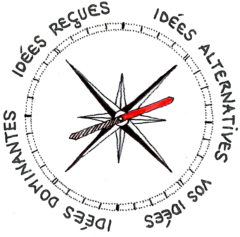In After capitalism, New critical theory (ed), 2002, pages 48-49.
Although workers control the workplace, they do not “own” the means of production. These are regarded as the collective property of the society. Workers have the right to run the enterprise, to use its capital assets as they see fit, and to distribute among themselves the whole of the net profit from production. Societal “ownership” of the enterprise manifests itself in two ways.
- All firms must pay a tax on their capital assets, which goes into society’s investment fund. In effect, workers rent their capital assets from society.
- Firms are required to preserve the value of the capital stock entrusted to them. This means that a depreciation fund must be maintained. Money must be set aside to repair or replace existing capital stock. This money may be spent on whatever capital replacements or improvements the firm deems fit, but it may not be used to supplement workers’ incomes.
If an enterprise finds itself in economic difficulty, workers are free to reorganize the facility or to leave and seek work elsewhere. They are not free to sell off their capital stocks and use the proceeds as income. A firm can sell off capital stocks and use the proceeds to buy additional capital goods. Or, if the firm wishes to contract its capital base so as to reduce its tax and depreciation ‘obligations, it can sell off some of its assets; in this case, proceeds from the sale go into the national investment fund, not to the workers, since these assets belong to society as a whole.
If a firm is unable to generate even the nationally specified minimum per capita income—Economic Democracy’s equivalent to the minimum wage—then it must declare bankruptcy. Movable capital will be sold to pay creditors. Its workers must seek employment elsewhere.
In essence, a firm under Economic Democracy is regarded not as a thing to be bought or sold (as it is under capitalism) but as a community. When you join a firm, you receive the rights of full citizenship; you are granted an equal voice, namely, an equal vote in the community. When you leave one firm and join another, these rights transfer. With rights come responsibilities, in this case the responsibilities of paying the capital assets tax and maintaining the value of the assets you are using.
